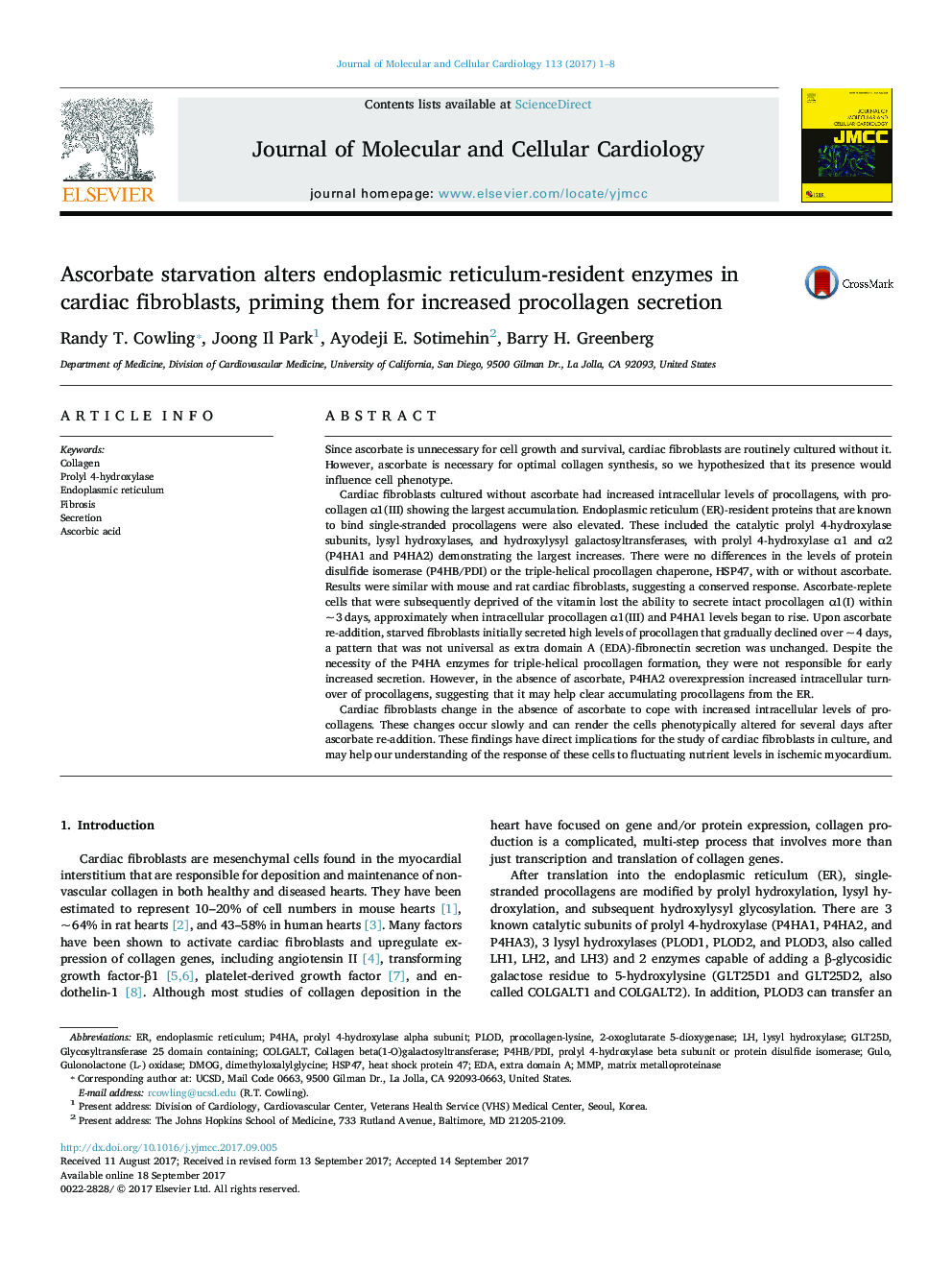| کد مقاله | کد نشریه | سال انتشار | مقاله انگلیسی | نسخه تمام متن |
|---|---|---|---|---|
| 5533403 | 1550393 | 2017 | 8 صفحه PDF | دانلود رایگان |
- Intracellular procollagens and modifying enzymes accumulate without ascorbate.
- Changes are slow, requiring days to reach steady-state.
- Reintroduction of ascorbate after its deprivation boosts collagen secretion.
- P4HA1 and P4HA2 increases are not responsible for augmented collagen secretion.
- P4HA2 overexpression enhances intracellular turnover of accumulated procollagens.
Since ascorbate is unnecessary for cell growth and survival, cardiac fibroblasts are routinely cultured without it. However, ascorbate is necessary for optimal collagen synthesis, so we hypothesized that its presence would influence cell phenotype.Cardiac fibroblasts cultured without ascorbate had increased intracellular levels of procollagens, with procollagen α1(III) showing the largest accumulation. Endoplasmic reticulum (ER)-resident proteins that are known to bind single-stranded procollagens were also elevated. These included the catalytic prolyl 4-hydroxylase subunits, lysyl hydroxylases, and hydroxylysyl galactosyltransferases, with prolyl 4-hydroxylase α1 and α2 (P4HA1 and P4HA2) demonstrating the largest increases. There were no differences in the levels of protein disulfide isomerase (P4HB/PDI) or the triple-helical procollagen chaperone, HSP47, with or without ascorbate. Results were similar with mouse and rat cardiac fibroblasts, suggesting a conserved response. Ascorbate-replete cells that were subsequently deprived of the vitamin lost the ability to secrete intact procollagen α1(I) within ~ 3 days, approximately when intracellular procollagen α1(III) and P4HA1 levels began to rise. Upon ascorbate re-addition, starved fibroblasts initially secreted high levels of procollagen that gradually declined over ~ 4 days, a pattern that was not universal as extra domain A (EDA)-fibronectin secretion was unchanged. Despite the necessity of the P4HA enzymes for triple-helical procollagen formation, they were not responsible for early increased secretion. However, in the absence of ascorbate, P4HA2 overexpression increased intracellular turnover of procollagens, suggesting that it may help clear accumulating procollagens from the ER.Cardiac fibroblasts change in the absence of ascorbate to cope with increased intracellular levels of procollagens. These changes occur slowly and can render the cells phenotypically altered for several days after ascorbate re-addition. These findings have direct implications for the study of cardiac fibroblasts in culture, and may help our understanding of the response of these cells to fluctuating nutrient levels in ischemic myocardium.
Journal: Journal of Molecular and Cellular Cardiology - Volume 113, December 2017, Pages 1-8
